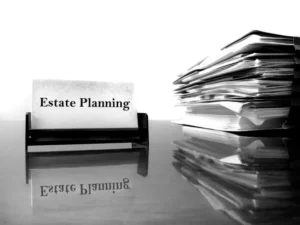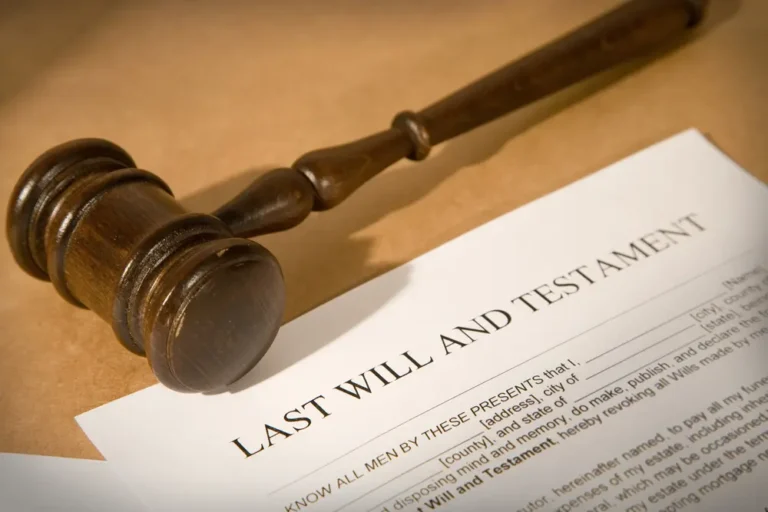Common Mistakes in Estate Planning~4 min read
Estate Planning is a vital process that ensures your assets are protected and your loved ones are provided for in the event of your passing. However, estate planning in Texas comes with its own unique considerations and challenges. It is not uncommon for individuals to make mistakes during the estate planning process. There are several common mistakes in estate planning that individuals need to be conscious of.

- Procrastination: One of the most common mistakes people make is procrastinating when it comes to estate planning. Many individuals put off creating a will or establishing a trust because they believe they have plenty of time. Unfortunately, life is unpredictable, and failing to plan can leave your assets and loved ones vulnerable. To avoid this mistake, start your estate planning as soon as possible, regardless of your age or financial situation.
- Not Having a Will: Some individuals believe that a will is unnecessary, or they may have misconceptions about how assets will be distributed without one. Without a valid will, your assets may be distributed according to state laws, which may not align with your wishes. Having a clear and legally sound will is fundamental in estate planning.
- Neglecting Updates: Estate planning isn’t a one-and-done task. Your life circumstances can change over time, and it’s essential to keep your estate plan up to date. Failing to update your plan after major life events like marriage, divorce, the birth of a child, or changes in financial status can lead to unintended consequences. Regularly review and revise your estate plan as needed to ensure it aligns with your current wishes.
- DIY Estate Planning: While there are various DIY estate planning tools and templates available online, relying solely on them can be risky. Estate planning is complex and often requires customization to fit your unique situation. Consulting with an experienced estate planning attorney can help you avoid costly mistakes and ensure your plan is legally sound.
- Not Understanding Texas Probate Laws: Texas has specific probate laws and procedures that differ from those in other states. Failing to understand these laws can lead to complications in the distribution of your assets.
- Ignoring Community Property Rules: Texas follows community property rules, which means that assets acquired during a marriage are generally considered community property, owned equally by both spouses. Not accounting for this in your estate plan can lead to unintended consequences.
- Not Updating Beneficiary Designations: Beneficiary designations on accounts like retirement plans, life insurance policies, and bank accounts are legally binding and take precedence over your will. Failing to update these designations after significant life events, such as divorce or the birth of a child, can result in assets going to unintended beneficiaries.
- Ignoring Tax Implications: Estate taxes can significantly impact the assets you leave behind. Failing to consider the tax consequences of your estate plan can lead to your heirs inheriting less than you intended.
- Not Utilizing Trusts Effectively: Trusts can be powerful tools in estate planning, offering benefits like avoiding probate, protecting assets, and ensuring the privacy of your estate. Failing to utilize trusts or selecting the wrong type of trust for your situation can lead to missed opportunities. Work with an estate planning attorney to determine the best trust strategy for your needs.
- Neglecting Digital Assets: In today’s digital age, people often overlook their digital assets, such as online accounts, cryptocurrency, and intellectual property. Failing to account for these assets in your estate plan can lead to difficulties for your heirs in accessing and managing them. Ensure you include a comprehensive plan for your digital assets.
- Overlooking Healthcare Directives: Estate Planning isn’t just about distributing assets. It should also include healthcare directives like a living will and a healthcare proxy. These documents ensure that your medical wishes are followed if you become incapacitated and unable to make decisions for yourself.
Estate planning is a critical process that requires careful consideration and professional guidance. By avoiding these common mistakes and taking a proactive approach to your estate planning, you can help ensure that your assets are distributed as you wish, minimize tax implications, and provide your loved ones’ financial security. An experienced Texas estate planning attorney can be an invaluable partner in this process.
Contact Springer & Lyle
If you have questions or need additional information regarding estate planning, contact Daniel Abasolo at 940.370.4033 to schedule a consultation. Our office is located at 1807 Westminster, Denton, Tx 76205.









